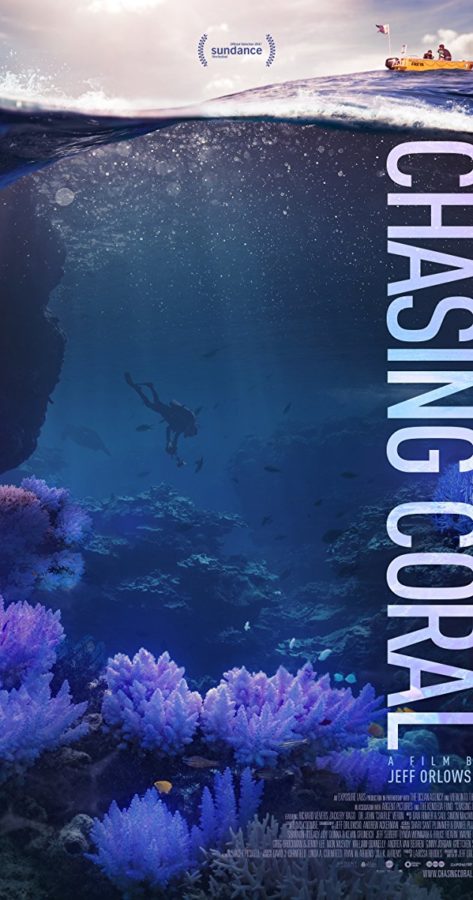Coral Documentary Draws “Standing-Room Only” Crowd
Chasing Coral, a documentary about a project using time lapse photography to record the degradation of coral reefs, drew enough attendees for standing room only in Althouse room 106 on Monday, Feb. 5.
Chasing Coral was the idea of Richard Vevers, a former advertising worker who decided that “there was something better that I could be doing with my life.” Troubled by the decline of coral worldwide, Vevers joined forces with coral experts and filmmakers to find a way to communicate the loss to the public.
“People don’t see why we should be investing in it even though it makes perfect economic sense,” Vevers said. Drawing from his past advertising experience, he suggested that scientists consider public relations when they present information.
The team faced numerous difficulties, whether struggling to move their camera gear past baggage claims or repairing flooded circuit boards. Vevers’s comments explain that the struggle to draw public attention to science is one of the team’s main difficulties.
A discussion was held following the film, led by a panel of Dickinson professors and the makers of the documentary. Along with Richard Vevers, the panel featured Zara Louise-Cowen, a marine scientist at the University of Delaware who assisted Chasing Coral’s on-site production, Marcus Key, the Joseph Priestly professor of natural philosophy at Dickinson, and Tony Pires and Thomas Arnold, professors of biology at Dickinson.
Vevers and Louise-Cowen were able to provide greater insight to the emotional impact of creating the film.
“When we started, it was all just adventure,” Vevers said. “But seeing all the coral in front of you got to be depressing.” For Louise-Cowen, the damage took on a personal tone. She conducted her Ph.D. research on many of the same reefs, which were dying. Key and Pires also had the opportunity to share information about their research, which focuses on organisms similar to coral. Key is an expert on coral-like invertebrates called byrozoans, while Pires is studying why one type of aquatic snail is particularly resistant to temperature.
Alexander Haver ’20 was moved by the film, stating that he “thought it was a very powerful documentary.” He appreciated the way the movie explained its subject “in a cool way that was approachable.”
Kendra Beaver ’20 agreed, describing Chasing Coral as “a wonderfully persuasive, informative, and engaging film,” but also felt that it placed great pressure on the students watching.
“I felt a bit overwhelmed by the regular mention of the job of saving the reefs, and essentially saving the planet, being on the shoulders of our generation,” Beaver said. “I wish I could encourage people of all ages to consider their efforts to minimize GHG [Greenhouse gas] emissions worthwhile.”
The screening was sponsored by the Center for Sustainability Education, with support from the departments of biology, Earth sciences, and environmental studies.
“I was extremely proud of and impressed with that turnout that we had for this film,” said Victoria Willis ’21. “Environmental issues are often overlooked as topics that we can push aside until a later date, but these issues need to be addressed now and by everyone, not just a small subset of the population.”






